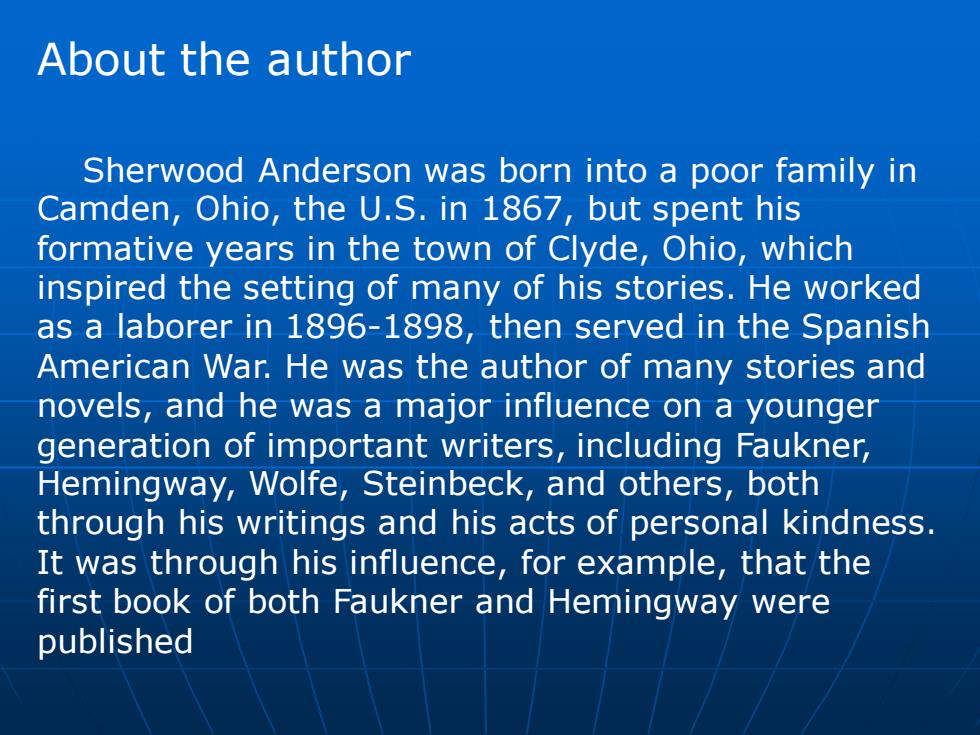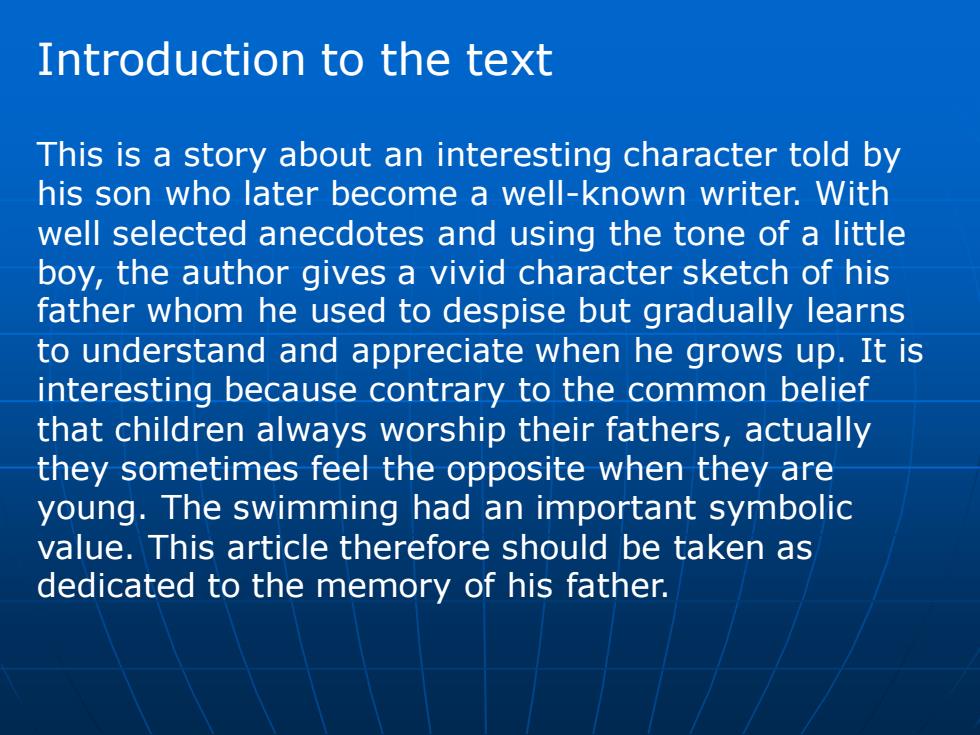
Lesson twoDiscovery of a father
Lesson two Discovery of a father

About the authorSherwood Anderson was born into a poor family inCamden,Ohio,theU.S.in 1867,but spenthisformative years in the town of Clyde, Ohio, whichinspired the setting of many of his stories.He workedasa laborer in1896-1898,then served intheSpanishAmerican War. He was theauthor of many storiesandnovels,andhe was a major influence on a youngergeneration of important writers,including Faukner,Hemingway,Wolfe,Steinbeck,and others,boththrough his writings and his acts of personal kindnessIt was through his influence, for example,that thefirstbook of both Faukner and Hemingway werepublished
About the author Sherwood Anderson was born into a poor family in Camden, Ohio, the U.S. in 1867, but spent his formative years in the town of Clyde, Ohio, which inspired the setting of many of his stories. He worked as a laborer in 1896-1898, then served in the Spanish American War. He was the author of many stories and novels, and he was a major influence on a younger generation of important writers, including Faukner, Hemingway, Wolfe, Steinbeck, and others, both through his writings and his acts of personal kindness. It was through his influence, for example, that the first book of both Faukner and Hemingway were published

Introduction to the textThis is a story about an interesting character told byhis son who later become a well-known writer.Withwell selected anecdotes and using the tone of a littleboy, the author gives a vivid character sketch of hisfather whom he used to despise but gradually learnsto understand and appreciate when he grows up. It isinteresting because contrary to the common beliefthat children always worship their fathers,actuallythey sometimes feel the opposite when they areyoung.The swimming had an important symbolicvalue.This article therefore should be taken asdedicated tothememoryof hisfather
Introduction to the text This is a story about an interesting character told by his son who later become a well-known writer. With well selected anecdotes and using the tone of a little boy, the author gives a vivid character sketch of his father whom he used to despise but gradually learns to understand and appreciate when he grows up. It is interesting because contrary to the common belief that children always worship their fathers, actually they sometimes feel the opposite when they are young. The swimming had an important symbolic value. This article therefore should be taken as dedicated to the memory of his father

Questionsto help comprehensionandappreciation.Do you agree that father often want theirchildren to be what they themselves cannotbe?What kind of a father did the author wish tohaveas a child?How did the author asachild describe hisfather?What happened one day that changed theauthor's opinions of his father completely?
Questions to help comprehension and appreciation. Do you agree that father often want their children to be what they themselves cannot be? What kind of a father did the author wish to have as a child? How did the author as a child describe his father? What happened one day that changed the author’s opinions of his father completely?

Word studycreditdelayedpaymente.g. He bought this car on creditb)praisee.g. Wemust give her credit for our discovery.C) sth.That can bringhonor or pride to sb.e.g. These students are a credit to our school.d) recognition for a successfully completedcourse at the universitye.g. This course gives three credit points
Word study credit delayed payment e.g. He bought this car on credit b) praise e.g. We must give her credit for our discovery. c) sth. That can bring honor or pride to sb. e.g. These students are a credit to our school. d) recognition for a successfully completed course at the university e.g. This course gives three credit points